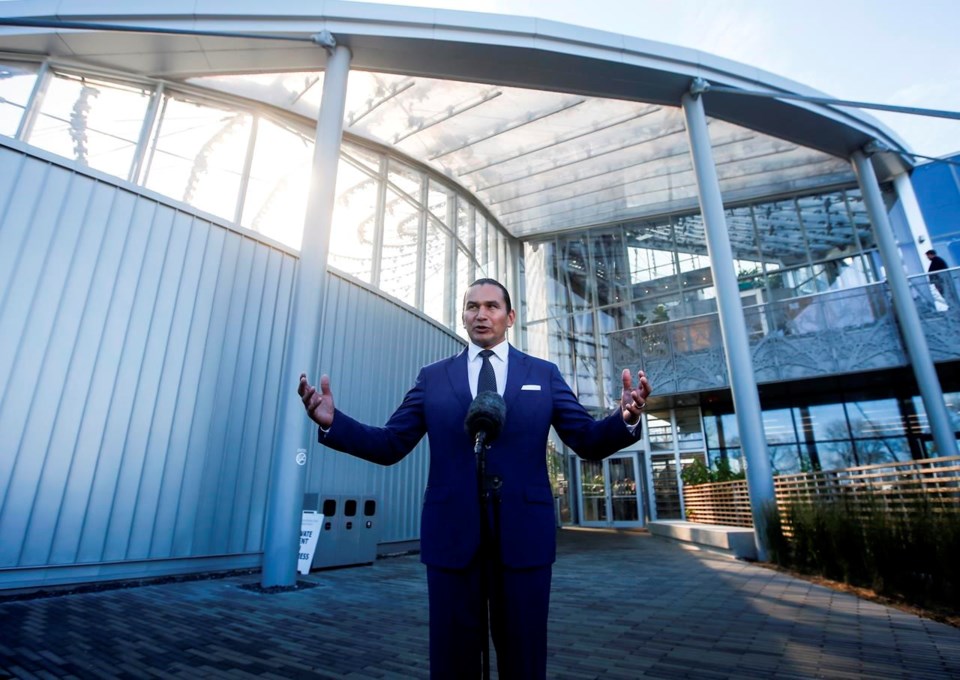WINNIPEG — Encouraging people to reduce their energy consumption through efficiency measures such as heat pumps is the first priority in ensuring Manitoba has enough capacity in its hydroelectric system, Premier Wab Kinew said Monday.
"Heat-pump technology is advancing by leaps and bounds," Kinew told reporters.
"We think that the next opportunity to bring more capacity onto the grid is by energy efficiency programs geared toward home and other customers. And so that's the first place we're going to look."
Kinew has instructed his cabinet, in recent mandate letters, to make it easier for people to switch to geothermal heating via some form of improved financial incentive. Efficiency Manitoba, a Crown corporation, already offers rebates of up to $2.50 per square foot.
Details of the government's plan will be rolled out by the ministers responsible, he added.
Crown-owned Manitoba Hydro took on a lot of debt to build new generating stations and a transmission line in recent years, and more new infrastructure could be needed in a little over a decade if current trends continue.
The utility last year suspended new service for cryptocurrency operations, citing their high energy demand.
The grid may also face increased demand from Kinew's plan to start hydrogen production in the province. Hydrogen could help get the province away from its small amount of natural gas and diesel reliance for power and toward net-zero emissions, Kinew said. And while it requires a lot of energy, he said hydrogen production could be tilted toward off-peak times of the year.
The New Democrats campaigned for the Oct. 3 election on promises to freeze hydro rates for one year and to offer incentives for people to buy electric vehicles.
Those promises are reiterated in Kinew's mandate letters to the ministers for Manitoba Hydro and Efficiency Manitoba.
The letters, however, make no mention of another campaign promise — to oppose any move by Manitoba Hydro to charge higher rates at peak times of the day.
Edward Kennedy, Manitoba Hydro's board chair, has said charging different rates at different times of the day could help reduce demand at peak times and push back the need for new generating infrastructure.
This report by The Canadian Press was first published Oct. 30, 2023.
Steve Lambert, The Canadian Press


